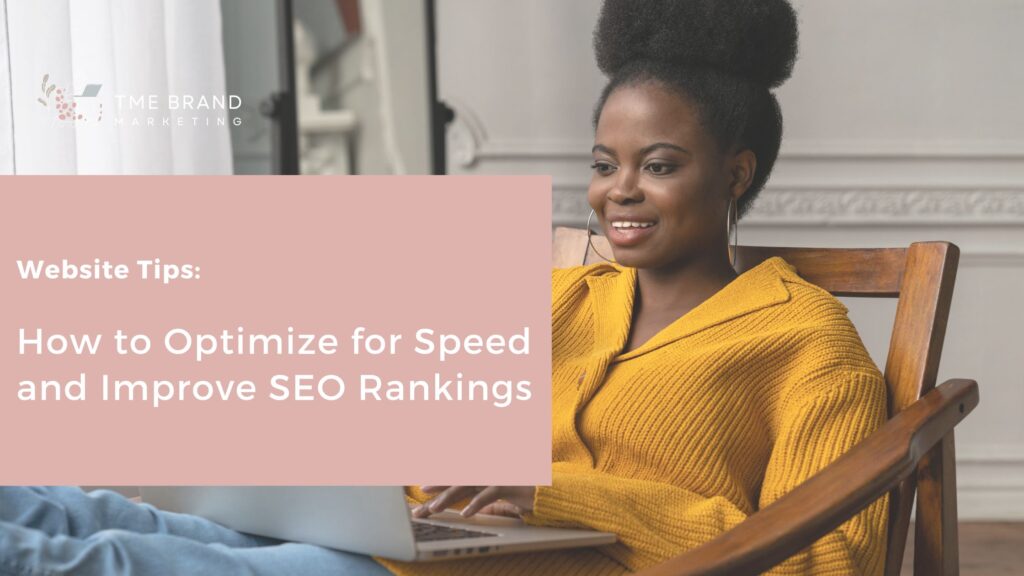
How to Optimize for Speed and Improve SEO Rankings
Imagine this: a potential client is searching for a therapist online, feeling overwhelmed and desperate for help. They click on your website, but it takes forever to load. Frustrated, they hit the back button and move on to someone else. Sound familiar? A slow website isn’t just a nuisance; it could be costing you clients and hurting your SEO rankings. Let’s dive into why website speed matters and how to fix it.
Why Website Speed Matters for Therapists
Think about the last time you visited a slow-loading website. Frustrating, right? Now imagine that experience for someone seeking mental health support. They’re already feeling overwhelmed, and a sluggish site can quickly lead them to click away—possibly to a competitor’s page. As a marketing company for psychologists, we’ve seen firsthand how website speed impacts user experience and, ultimately, SEO rankings.
Google prioritizes fast websites because they provide better experiences for users. A delay of even a few seconds can lead to higher bounce rates, lower session durations, and a drop in search rankings. If your therapy website isn’t optimized for speed, you could be losing potential clients before they even read about your services.
Signs Your Therapy Website Is Too Slow
- Long Load Times: If your website takes more than 3 seconds to load, you’re likely losing visitors.
- High Bounce Rate: A bounce rate over 70% might indicate visitors are leaving before your site fully loads.
- Poor Mobile Experience: With most users browsing on their phones, a slow mobile site is a deal-breaker.
- Low Conversion Rates: If people visit your site but don’t contact you, slow speed might be a factor.
If these issues sound familiar, it’s time to make some changes. Let’s explore how you can speed up your website and boost your SEO rankings.
Step 1: Assess Your Current Website Speed
Before you can optimize, you need to know where you stand. Use tools like Google PageSpeed Insights or GTmetrix to test your site’s performance. These tools will provide a detailed report, including speed metrics and recommendations for improvement.
At TME Brand Marketing, we’ve helped countless therapists analyze their website performance as part of our services for web design for mental health therapists. If you’re not sure how to interpret the results, we’re here to help.
Step 2: Optimize Your Hosting
Your hosting provider plays a massive role in your website’s speed. Shared hosting plans might save you money, but they often come with slower load times. Consider upgrading to a managed hosting plan or a dedicated server designed for speed.
Step 3: Compress Images
Large images can slow down your site significantly. Use tools like TinyPNG or ImageOptim to compress your images without sacrificing quality. Properly optimized images can drastically improve load times and make your site more appealing to users and search engines alike.
Step 4: Enable Caching
Caching stores copies of your website’s files so that they can be quickly accessed by returning visitors. Plugins like WP Rocket or W3 Total Cache are excellent options for WordPress sites. This is a simple yet effective way to enhance your website’s performance.
Step 5: Minimize Code
Bulky code can bog down your website. Minify your HTML, CSS, and JavaScript files using tools like UglifyJS or CSSNano. This step might sound technical, but it’s a game-changer for site speed.
Step 6: Mobile Optimization
Google uses mobile-first indexing, meaning your site’s mobile version plays a crucial role in your SEO rankings. Ensure your site is fully responsive and optimized for mobile users. At TME Brand Marketing, we prioritize mobile-friendly web design for mental health therapists to ensure their sites are accessible to all users.
Step 7: Monitor Plugins
While plugins can add functionality to your site, too many can slow it down. Conduct a plugin audit to remove outdated or unnecessary ones. Stick to essential, high-quality plugins that won’t compromise performance.
Step 8: Use a Content Delivery Network (CDN)
A CDN stores your website’s data across multiple servers worldwide. This ensures faster load times for visitors, no matter their location. Cloudflare and Akamai are popular choices that can significantly improve site speed.
Step 9: Regular Maintenance
Website optimization isn’t a one-time task. Regularly update your site’s software, fix broken links, and monitor performance metrics to ensure it stays fast and functional.
How Faster Websites Improve SEO Rankings
When your therapy website is fast, it not only delights visitors but also earns Google’s favor. Speed is a direct ranking factor, but its benefits go beyond that. Faster sites have lower bounce rates and higher engagement, both of which signal to Google that your site is valuable.
Additionally, improved speed supports other SEO efforts, like keyword optimization and high-quality content. If your site loads quickly, visitors are more likely to stay and explore, increasing the chances they’ll contact you for services. Whether you’re focusing on web design for mental health therapists or crafting engaging social media for therapists, a fast website is foundational.
Boost Your Rankings with SEO Best Practices
In addition to speeding up your site, implement these SEO tips:
- Use Targeted Keywords: Incorporate terms like “marketing company for psychologists,” “web design for mental health therapists,” and “social media for therapists” naturally into your content.
- Optimize Meta Tags: Create compelling meta titles and descriptions that include your keywords.
- Build Quality Backlinks: High-quality backlinks from reputable sites boost your domain authority.
- Focus on Local SEO: Ensure your practice appears in local searches by claiming your Google My Business listing.
TME Brand Marketing: Your Partner in Website Optimization
We know that as a mental health professional, your time is best spent supporting your clients—not worrying about website performance. That’s where we come in. As a marketing company for psychologists, we specialize in creating fast, SEO-friendly websites that attract and convert potential clients.
Our team also offers comprehensive strategies for social media for therapists, ensuring your online presence is cohesive and compelling across all platforms. Whether you need help with web design for mental health therapists or a full-scale marketing plan, we’re here to support you every step of the way.
Final Thoughts
Don’t let a slow website hold your practice back. By optimizing your site for speed and SEO, you can create a better experience for potential clients and improve your search rankings. Remember, your website is often the first impression clients have of your practice. Make it count.
Ready to take your therapy website to the next level? Book a free ‘Get to Know You’ call with us today! Together, we’ll build a fast, optimized site that helps your practice thrive.

